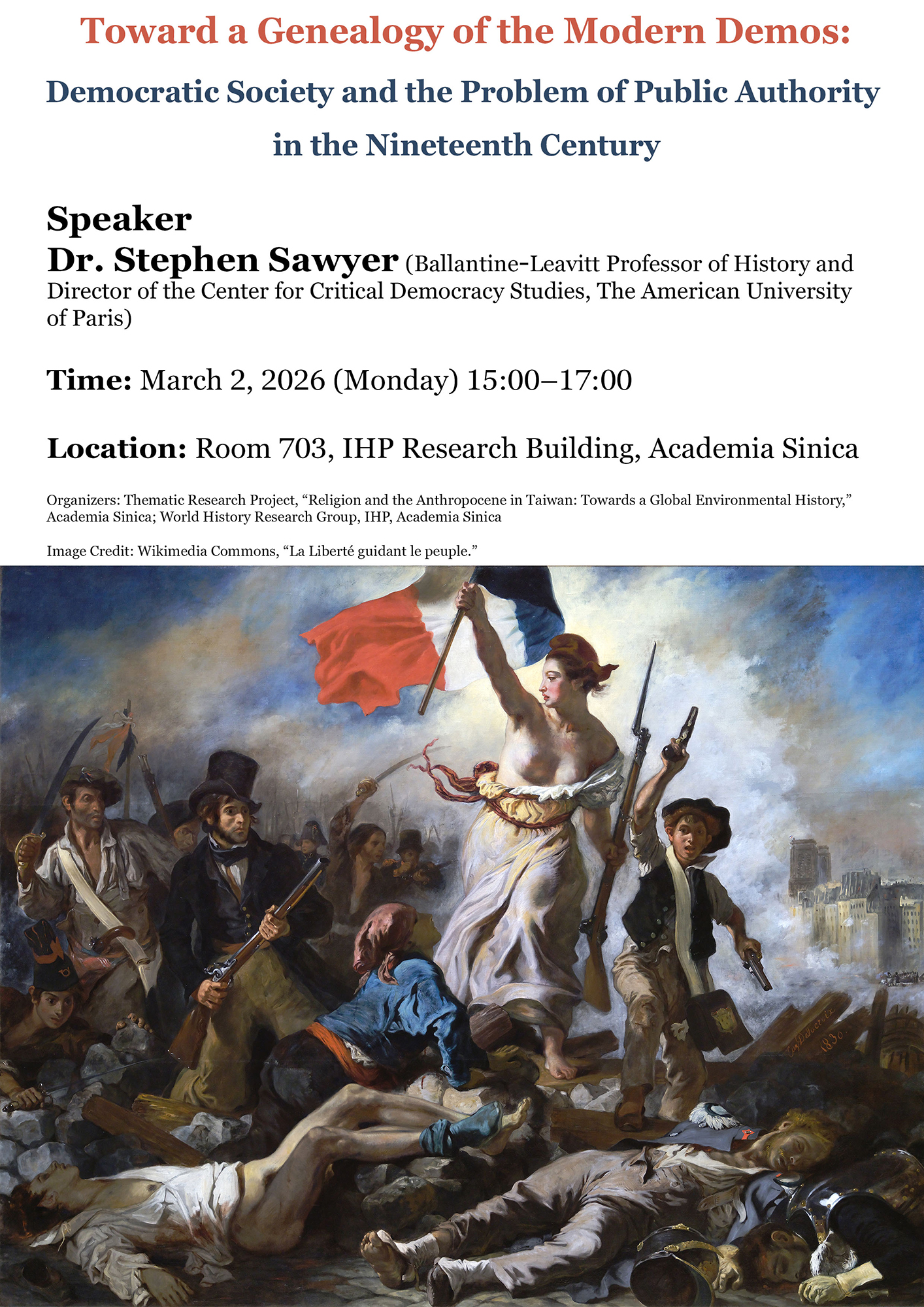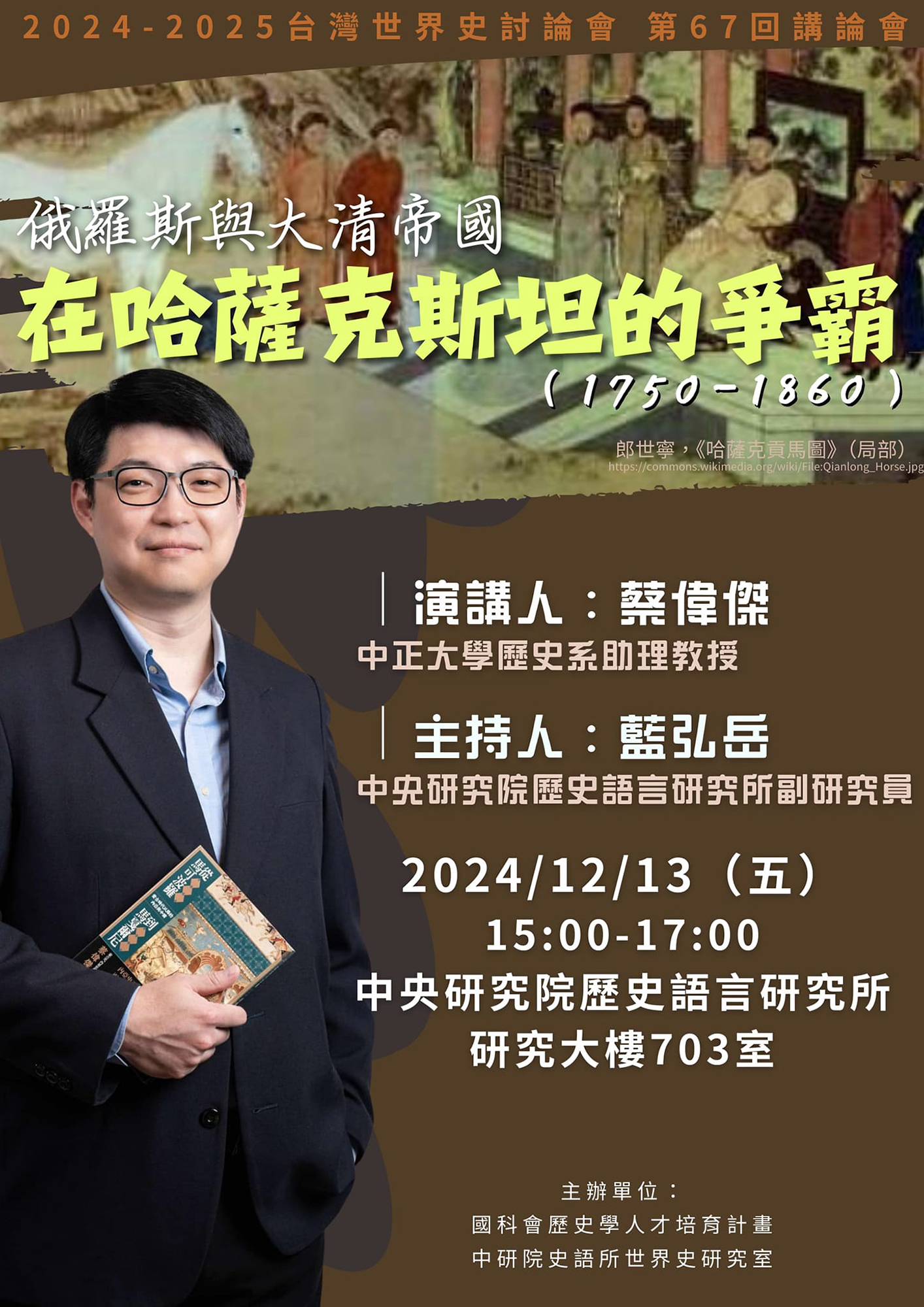Russian Hegemony with the Qing Empire in Kazakhstan (1750-1860)
Speaker: Dr. W.J. Tsai (Assistant Professor, Department of History, National Chung Cheng University)
Topic: Russian Hegemony with the Qing Empire in Kazakhstan (1750-1860)
Moderator: Dr. H.Y. Lan (Research Fellow, Institute of History and Philology, Academia Sinica, and Chief Coordinator of the World History Research Center)
Time: December 13, 2024 (Fri) 15:00 - 17:00
Venue: Room 703, 7/F, Research Building, Institute of Historical and Philology, Academia Sinica
Organizers: History Talent Cultivation Program of National Science and Technology Council, and World History Research Center, Institute of History and Philology, Academia Sinica.
Registration: https://docs.google.com/forms/d/e/1FAIpQLSe1fOmyvU3zxx_b1L8Vsej6iHG8qSur8Aqs169zs27uQdvMgg/viewform
Introduction:
This lecture will focus on the hegemony between the Russian and Qing emperors in Kazakhstan from the mid-eighteenth to the mid-nineteenth centuries, and explore the differences in political ideologies between the two emperors' policies in Central Asia. The expansion of the two empires in Central Asia met in Turkestan. On the one hand, Tsarist Russia gained control of Western Turkestan by attracting the loyalty of local leaders, while on the other hand, the Qing Dynasty consolidated its rule in Eastern Turkestan through conquest. Originally there was the Junghar Empire as a buffer between the two empires, but after the collapse of the Junghar Empire in 1757, direct confrontation between the two powers in Turkestan became inevitable. As a result, the position of the Khasak Khanate became important. This lecture attempts to demonstrate the differences between the imperial and colonial traditions of the Russian Empire, heir to the Roman and Christian traditions, and the Qing Empire, heir to the Mongol tradition, as they confronted the Khasak Khanate.
❈ Prior registration is required for this lecture.
Lastest Events
-

Speaker翁育瑄
Going to Court in the Song Dynasty: Popular Litigious Behavior and Legal Strategies
Time2026-02-23
Location研究大樓702室
-

SpeakerStephen Sawyer
Toward a Genealogy of the Modern Demos: Democratic Society and the Problem of Public Authority in the Nineteenth Century
Time2026-03-02
Location研究大樓703室


